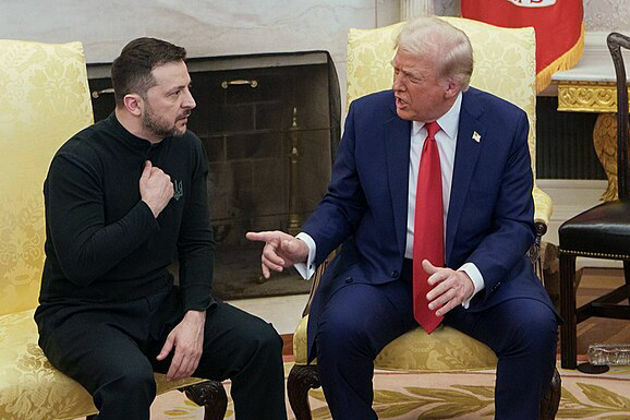Martensen IP Offers Valuable Insight into Why Pursuing Patents Matters & the Compatibility of Patents and Small Business
Brand Story
21 Sep 2022, 08:45 GMT+10
The Congress shall have power "To promote the progress of science and useful arts, by securing for limited times to authors and inventors the exclusive right to their respective writings and discoveries" Article I Section 8 Clause 8 United States Constitution.
These words are embodied in the United States Code, giving rights to inventors and authors alike for their writings and discoveries. As one can appreciate, a few more stipulations, criteria and interpretations have been associated with this one clause over the past 200+ years, but it stills forms the bedrock of patent and copyright protection.
The History of Patents
For a moment, let's focus on patents. Patents are not a new concept. The Parliament of England, in 1624, passed the Statute of Monopolies, endowing inventors with the sole right to their inventions for 14 years. And before that, the Senate of Venice passed a patent statute in 1474 providing protection against potential infringers, albeit mostly in the field of glassmaking.
It is hard to believe that the framers of the Constitution predicted how valuable intangible rights embraced by patents and copyrights would become. But they clearly recognized that protecting these products gives their producers an incentive to create more and thus stimulates greater activity.
The kings of industry have long understood the value of patents. Thomas Edison is affiliated with 1,093 patents. The Ford Motor company has 79,017 patents as of August 2022, making up some 28,000 patent families (related patents). And since 1920, IBM has received more than 150,000 patents.
Clearly patents are valued by larger companies for many reasons. But what about a small business concern? Does the protection a patent offers justify the cost?
The Power of Patent Protection
Patents provide what is called a negative right. That means the inventor of a granted patent has right to stop others from making, using, selling or importing that which is described in the claims appending the end of the patent. They do not create any sort of positive right for the owner to make, use, sell or import the same patented technology. Indeed, to practice one's patent may require the inventor to license the patent of another.
Let's consider that "right" from the perspective of a small business. The right to "stop" another means the right to sue.
An inventor, or the assignee of the invention, can file a suit in federal court asserting infringement of a patent. The average cost of patent litigation through trial is in the area of $2 million according to the American Intellectual Property Law Association.
Damages vary, but statistically, 48% of awards are less than the average cost of litigation. Interestingly, 43% of verdicts result in damages for more than double the average cost of litigation.
Regardless, the risk is clearly apparent. For a small business, waging a court battle is often a bet-the-company proposition and most companies are not willing to roll those dice.
Why Pursuing Patents Matters
So, if you accept that most small companies will not entertain the risk of filing a patent suit, why spend valuable resources to secure patent rights in an innovation?
One reason is validation. Patents are a means by which an independent third party examines and confirms that the stated innovation in the patent application has utility (it is useful), is novel (new) and is non-obvious (not common sense).
The patent office, despite all its challenges, examines the technical art to ascertain new and useful innovations and awards patents accordingly. That third-party validation translates to value-value that can be realized upon exit or a change of control.
Company valuation is not a trivial topic, and it is certainly not centered on patent valuation or even intellectual property (IP) value generally. Indeed, most company valuation is based on some form of revenue generation. But typically, when revenue is directly tied to rights stated in a patent, the value of the company increases. Multiples of 5, 10 or 20 are not uncommon.
If you missed that key element, let me restate it: When revenue is tied directly to rights stated in the patent claims, the value of the company increases.
A patent that has nothing to do with the revenue generation is, arguably, of marginal value to a company. But here's the problem: It's hard to tell which patents and which claims will be tied to revenue-producing products and services.
Remember those 150,000 patents issued to IBM? It's safe to say many are of marginal value. It's also safe to say a few are extremely valuable. I wish it was an exact science, but it's not.
Reason number two that patents are important to small companies is that they give these organizations an opportunity to interact with larger enterprises.
It is no secret that most innovation occurs in small companies. Larger companies continually look for innovative firms that offer technology that complements theirs or meets a growing need or strategy. In doing their diligence on which companies to embrace, IP is a factor.
It is costly to design around patent claims owned by another company. Even the analysis can delay a product's time to market. These factors enable small business patent owners to have conversations with larger entities. There is no guarantee of the outcome of those conversations, but patents are often an invitation to the table.
Patents as Investments in the Future
Beyond benefiting society by promoting the creation of new and useful innovations, patents offer an inventor key advantages. That is true whether they are a small business or a large enterprise.
Patents are an investment in the future. But they are an investment whose return may not be realized for several years, so both foresight and patience are essential.
P.S. What about patents and working with the Government... Stay tuned.
About Martensen IPAt the intersection of business, law and technology, Martensen understands the tools of IP. Martensen knows the business of IP. We understand the tech market, especially when the government is a customer, and we know how to plan, assess, and adjust. Patents, trademarks, copyrights, trade secrets, licenses are our tools.
Martensen IP Media ContactMike Martensen | Founder(719) 358-2254
News Via KISS PR https://story.kisspr.com/
This content is published on behalf of the above source. Please contact them directly for any concern related to the above.
This press release may contain forward-looking statements. Forward-looking statements describe future expectations, plans, results, or strategies (including product offerings, regulatory plans and business plans) and may change without notice. You are cautioned that such statements are subject to a multitude of risks and uncertainties that could cause future circumstances, events, or results to differ materially from those projected in the forward-looking statements, including the risks that actual results may differ materially from those projected in the forward-looking statements.
 Share
Share
 Tweet
Tweet
 Share
Share
 Flip
Flip
 Email
Email
Watch latest videos
Subscribe and Follow
Get a daily dose of Nashville Herald news through our daily email, its complimentary and keeps you fully up to date with world and business news as well.
News RELEASES
Publish news of your business, community or sports group, personnel appointments, major event and more by submitting a news release to Nashville Herald.
More InformationInternational
SectionGas station blast injures 40 in Rome, kids narrowly escape
ROME, Italy: Quick thinking by emergency responders helped prevent greater devastation after a gas station explosion in southeastern...
Weapons pause by Trump signals shift away from foreign wars
WASHINGTON, D.C.: President Donald Trump is drawing praise from his core supporters after halting key arms shipments to Ukraine, a...
Moscow removes Taliban from banned list, grants official status
MOSCOW, Russia: This week, Russia became the first country to officially recognize the Taliban as the government of Afghanistan since...
Netanyahu vows 'No Hamas' in postwar Gaza amid peace talks
CAIRO, Egypt: This week, both Hamas and Israel shared their views ahead of expected peace talks about a new U.S.-backed ceasefire plan....
US sends message by publicizing visa ban on UK punk-rap band
WASHINGTON, D.C.: The Trump administration has made public a visa decision that would usually be kept private. It did this to send...
Tragedy in Spain: Diogo Jota and his brother die in car accident
MADRID, Spain: Liverpool footballer Diogo Jota and his younger brother, André Silva, have died in a car accident in Spain. Spanish...
Business
SectionSaudi Aramco plans asset sales to raise billions, say sources
DUBAI, U.A.E.: Saudi Aramco is exploring asset sales as part of a broader push to unlock capital, with gas-fired power plants among...
Russia among 4 systemic risk countries for Italian banks
MILAN, Italy: Italian regulators have flagged four non-EU countries—including Russia—as carrying systemic financial risk for domestic...
US debt limit raised, but spending bill fuels fiscal concerns
NEW YORK CITY, New York: With just weeks to spare before a potential government default, U.S. lawmakers passed a sweeping tax and spending...
Shein hit with 40 million euro fine in France over deceptive discounts
PARIS, France: Fast-fashion giant Shein has been fined 40 million euros by France's antitrust authority over deceptive discount practices...
Meta hires SSI CEO Gross as AI race intensifies among tech giants
PALO ALTO/TEL AVIV: The battle for top AI talent has claimed another high-profile casualty—this time at Safe Superintelligence (SSI),...
Engine defect prompts Nissan to recall over 443,000 vehicles
FRANKLIN, Tennessee: Hundreds of thousands of Nissan and Infiniti vehicles are being recalled across the United States due to a potential...













